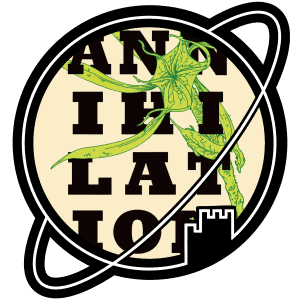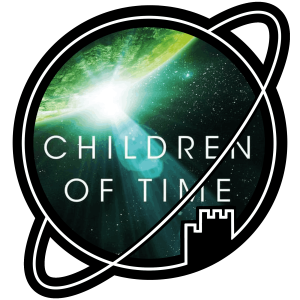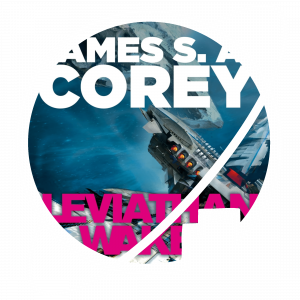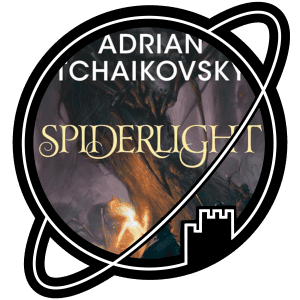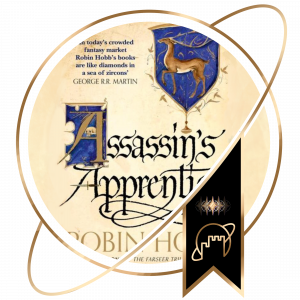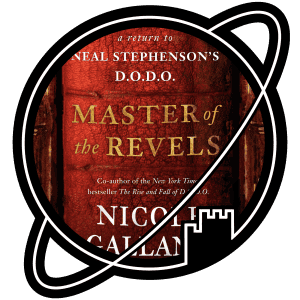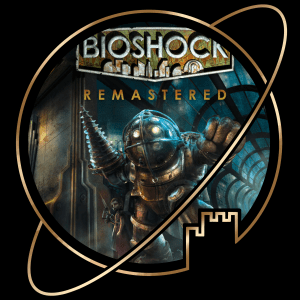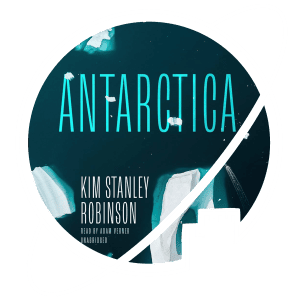- Novel written by Adrian Tchaikovsky
- Published 26 March 2024
- Standalone


Listened to the audiobook with Ben Allen. Very well read.
Before you read the rest of my review – I just read it back and I realise it comes of very negative. Please don’t walk away from this thinking reading Alien Clay is a waste of time – I did enjoy reading it and I would recommend it – it is not particularly long, well paced and it has some fascinating alien biology that really sets it apart.
However, I think my review below very clearly shows that that I felt a little disappointed with the potential that I think Tchaikovsky ‘wasted’ when he used his biological knowledge and premise on a quick novel that is just lacking a little in depth beyond it.
I couldn’t shake the impression though that Alien Clay was a bit rushed, particularly in the worldbuilding and the resolution. That might just be a style thing – I don’t think that Tchaikovsky would have wanted to elaborate on the background of his story. But I felt like Alien Clay was brimming with interesting ideas that were stretched over a really thin plot and supported with bare bones worldbuilding.
First, the plot of Alien Clay is really about as simple as it gets, not bad but hardly worth discussing. More interesting is the worldbuilding.
When I say that Alien Clay has ‘bare bones worldbuilding’, I am not necessarily referring to the biology of Kiln, the planet that is effectively the main character of this book. I think the premise – evolution not through competition but symbiosis – is great. I love that the biology Tchaikovsky presents actually feels alien, which is a feat surprisingly few science fiction writers manage.
What is missing though, is the background on the human landscape. Tchaikovsky does some cursory work on the repressive and scientifically regressive regime on earth, but I think the novel would have benefited from more details on the characters’ lives back home. I liked his description of the between-fear-and-hope atmosphere in the scientific community in earth and I think it was worth spending some time on. I also felt like our main character didn’t actually live a life on his home planet.
Moreover, there is an episode halfway through the novel that Tchaikovsky seems to have just given up on – he skipped forward, gave a couple of anecdotes from that time in between, and moved straight to the final face off.
While I agree that the novel would not have necessarily improved from describing that one particular event in detail from start to finish, I feel like the way Tchaikovsky choose to work around it was representative of the issues that I have with Alien Clay. I feel those might have been ironed out with the input of a good editor.
Finally, the ending of the novel was a little predictable – in particular when viewed in line with Tchaikovsky’s other work (’humans need something inhuman to improve upon themselves’). It wasn’t helped, of course, by the lack of depth in the characters themselves or the de-individualisation that he puts them through. I think it underlines that Tchaikovsky simply wasn’t interesting in writing a particularly engaging plot or characters.
In the end, I switched off Alien Clay when it finished, wondering whether it would not have been better off as a novella.
In short: great ideas, great execution in one aspect, just a little lacklustre in others – still worth reading.






